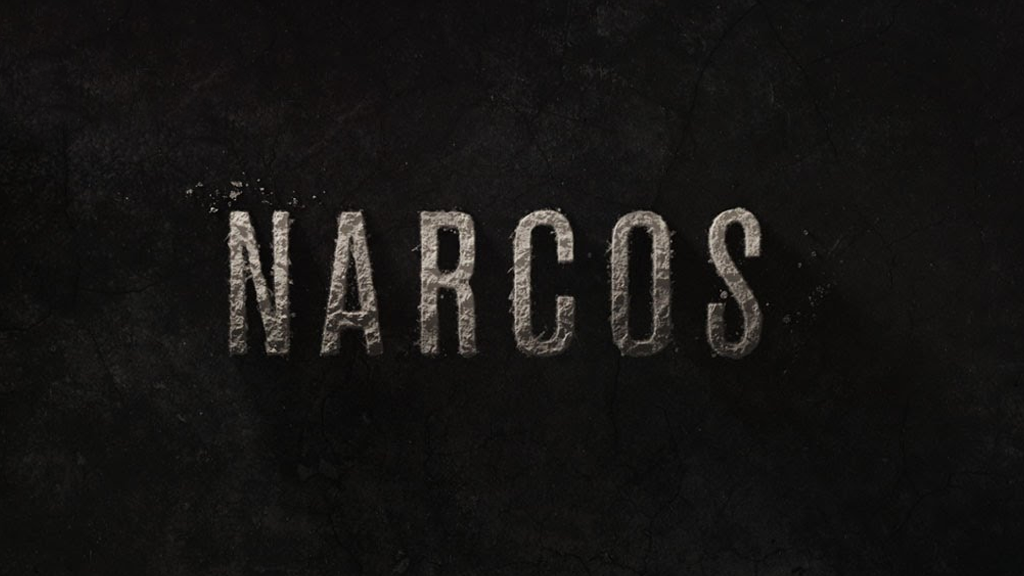4.5/5 Stars
In the still-early years of the 2010s, Netflix has already made a name for themselves as a producer of original series that give both HBO and AMC a run for their money. Critically acclaimed series such as "Orange is the New Black," "Bloodline" and "House of Cards" have transformed Netflix from a simple platform for binge-watching episodes of "Parks and Recreation" or "The X-Files" to one at the forefront of a new generation of television. With "Narcos," that legacy is cemented even further in place.
It is a larger-than-life story whose fallout still echoes in modern society, and to tell it one must approach it with a certain objective severity. This is where, undoubtedly, "Narcos" excels. From the opening scenes with narration by DEA Agent Steve Murphy (Boyd Holbrook), an expectation is built that this is going to be a generic case of the good guys versus the bad guys. However, while Escobar (Wagner Moura) is introduced as an imposing figure, to say the least, he is also shown to be a family man, a murderer and bandit with an undying love for his mother and young wife (of course, it may be important to mention that Escobar's wife, Maria, is portrayed as an adult in the series, though she married Escobar at 15, him being 26). Meanwhile, Murphy is prone to violent outbursts, shady police tactics and, with the show touching heavily on the Iran-Contra debacle, most certainly not a beacon of moral fortitude.
"The bad guys don't play by the rules," Murphy states at one point in the series. "That's what makes them the bad guys."
And here is where "Narcos" finds its foothold as a truly magnificent play on the dynamic of good and evil. Escobar is the hand of chaos and destruction, yet the law only bends by force, if at all. There is no good guy and there are no bad guys. Each side has its own part in a continued assured system of destruction, and this makes for some truly complex character development for the entire superb cast.
We get Escobar simultaneously investing millions of dollars into community development in Medellin and fueling the deaths of thousands by his own command. We get a DEA agent holding a taxi driver at gun point in a road rage incident while on a mission to clean up Colombia. We get Valeria Valez (Stephanie Sigman), a Colombian broadcast journalist carrying out an affair with Escobar to get the scoop on his empire. In a sense, some parallels can be drawn to "The Sopranos," in which we know, objectively, that Tony is a murderous, psychopathic, sexist, racist, homophobic monster. Yet he is, at the same time, as is Moura's Escobar, charming as hell, while the "good guys" slowly have their own short-comings seep through the cracks. "Narcos" does not guide the audience by the hand to the right side, but rather plays out as "this is what happened, make up your own mind."
It is courageous, bold television, which as previously stated is carried unquestionably by an absolutely stellar cast. With clips from contemporary news broadcasts showing the actual Escobar and Murphy sprinkled throughout the show, we catch a glimpse of just how well-done the casting really is. Moura really, almost eerily, looks like Escobar, while Holbrook's Murphy is spot-on, as well as Sigman's Valez (based on real-life journalist Virginia Vallejo). From the nuances of the character traits to the wardrobe itself, the acting is uncannily phenomenal. To compliment this, it may be of note to mention approximately half of the dialogue in "Narcos" is in Spanish (Moura never speaks English), a refreshing choice when looking at series like FX's "The Strain," which assumes everyone in Germany and Eastern Europe speaks English with a British accent.
What we find with "Narcos" is a modern tragedy; the rise of a king, the ambiguous struggle between good and evil, corruption, love and the meaning of family. All tied up in one explosive, seamlessly written and performed package.








